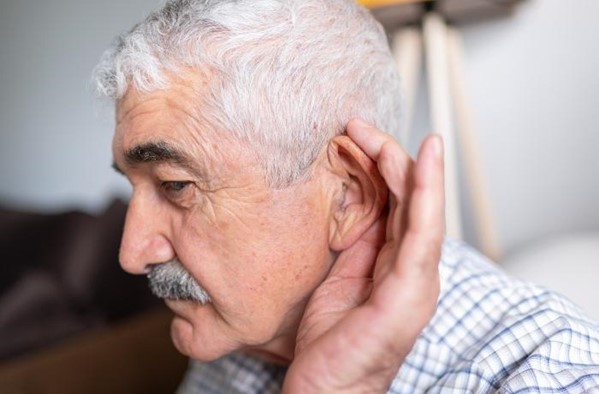Types of Hearing Loss

Types of Hearing Loss
Hearing loss is a pervasive problem among adults in the United States. Data shows that more than 12 percent of adults have suffered hearing loss in both ears and could benefit from wearing a hearing aid.
Hearing Loss
Many individuals assume that hearing loss occurs in the same part of the ear. However, there are four types of hearing loss, and each has very different symptoms, qualities, causes, and treatments. The following is a conclusive guide to the four types of hearing loss and what each will mean.
Conductive Hearing Loss
When sound waves are not received from the outer ear to the inner ear, this is called conductive hearing loss. This type of hearing loss can have many causes. A foreign object in the ear can cause this type of hearing loss, as can earwax or fluid buildup. However, conductive hearing loss can also be caused by genetic disorders, damage to the eardrum, and other structural abnormalities.
Visiting an ENT or audiologist can help individuals determine if they have conductive hearing loss and receive the treatment they need. Depending on the cause of the conductive hearing loss, a hearing aid may be required. If the issue is as simple as earwax buildup, an ear irrigation can be performed to clear the ear of any waxy buildup or residue. If the cause of the conductive hearing loss is more of a structural issue, surgery can be performed to remove the blockage.
Sensorineural Hearing Loss
An issue with the inner ear or acoustic nerve causes sensorineural hearing loss. The inner ear, or cochlea, can be damaged by illness, medication, prolonged exposure to loud sounds, genetics, or aging.
Unfortunately, sensorineural hearing loss is permanent, so pharmaceutical treatment is generally not an option. However, treatment options may include hearing aids or surgically placed cochlear implants. This can help restore much of the hearing that was lost.
Auditory Neuropathy Spectrum Disorder (ANSD)
In this hearing disorder, sounds are transmitted through the ear without issue. However, when the sounds reach the receptors inside the ear, there is an issue with how they are transmitted to the brain. Several kinds of problems can cause this type of hearing loss. Most commonly, it is caused by premature birth or lack of oxygen at birth. In other instances, there is a genetic disorder. Damage is sustained to the auditory nerve, and that explains why the individual is able to hear the sounds but not understand the words they’re hearing.
Occasionally, this condition can be treated with a cochlear implant. However, visual communication, such as lip reading or sign language, is often required.
Mixed Hearing Loss
In mixed hearing loss, there is some level of combination of conductive and sensorineural hearing loss. Patients who suffer from mixed hearing loss will likely be treated for conductive hearing loss initially to see if this treats the issue.
Some recommendations for this type of hearing loss include hearing aids, surgery, or cochlear implants.
How to Find Out What Type of Hearing Loss You Have
If you are experiencing hearing loss, it is time to visit an audiologist or an ENT. There, you will be diagnosed and told what type of hearing loss you have. With the proper diagnosis comes safe and effective treatment and some relief.
Expert ENT
In the Fort Worth area, the healthcare professionals at Expert ENT Care have your best interests at heart. Dr. John L. Fewins, MD, FACS at Expert ENT, will be able to help treat your hearing issues, diagnose the problems you’re having, and get you on the road to clear hearing. Dr. Fewins is Fort Worth’s expert at treating hearing issues. For testimonials from other patients, visit our page of glowing testimonials he has received. In the Fort Worth area, Dr. Fewins is the clear choice for all ear, nose, and throat problems. A member of the Texas Association and American Academy of Otolaryngology for Head and Neck Surgery, as well as a member of the Texas Medical Association, Dr. Fewins is undoubtedly qualified to treat all issues of the ears, nose, and throat. Fluent in English and Spanish, Dr. Fewins is a down-to-earth family man who cares for his patients as he would his own family. For more information, visit our website today. Or contact us to schedule an appointment.

